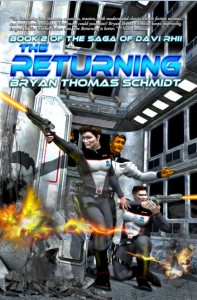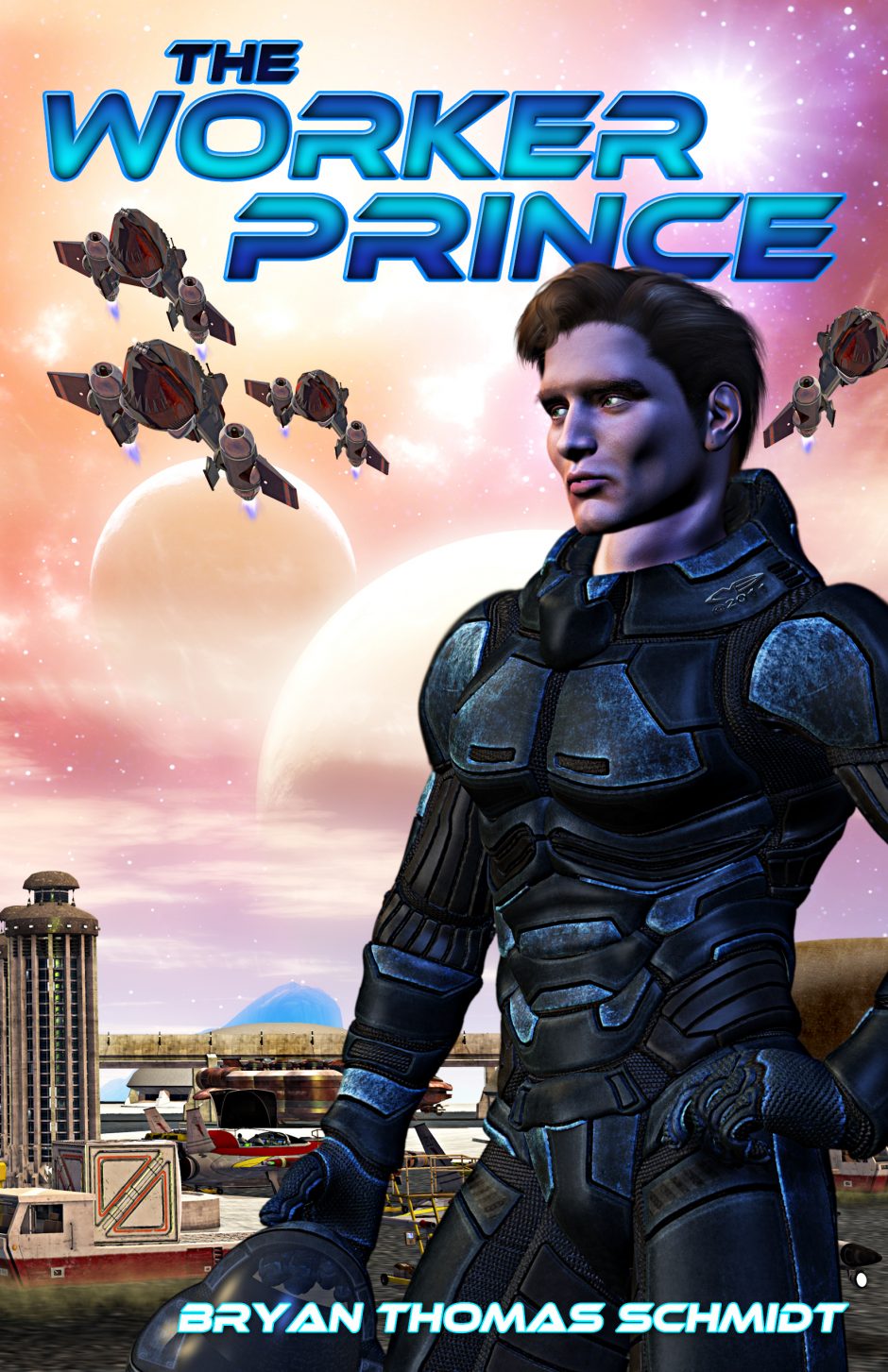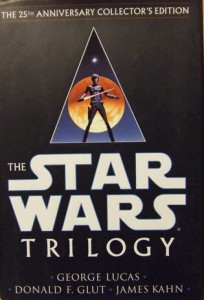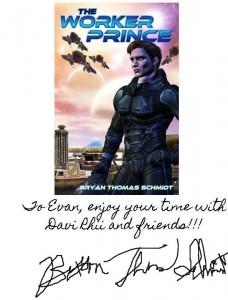 We all live in a box. You may not be aware of yours, but you should trust me, when I tell you: it exists. It’s hard to see it when you’re inside of it, too. It’s only by stepping outside of it where, in essence, the control and comfort it automatically provides are gone that one becomes aware of its existence. It’s vital to be aware of this when creating characters and building worlds, because it can be such a valuable tool in that process. So much of our own cultural identity, understandings of race, class, gender and sexuality result from that box. It’s the lens through which we view ourselves, our world, and everyone around us. We’re all biased, even though we often hate to admit it. It’s not fun to think about, but it’s very much the truth.
We all live in a box. You may not be aware of yours, but you should trust me, when I tell you: it exists. It’s hard to see it when you’re inside of it, too. It’s only by stepping outside of it where, in essence, the control and comfort it automatically provides are gone that one becomes aware of its existence. It’s vital to be aware of this when creating characters and building worlds, because it can be such a valuable tool in that process. So much of our own cultural identity, understandings of race, class, gender and sexuality result from that box. It’s the lens through which we view ourselves, our world, and everyone around us. We’re all biased, even though we often hate to admit it. It’s not fun to think about, but it’s very much the truth.
A person who grows up poor and black in a ghetto and only meets white people as authority figures (cops, teachers, government officials, etc.) who treat them as lower class and tell them how to act, who control their income or access to various opportunities and goods and services, will inevitably regard white people differently than a black person who grew up in a middle class neighborhood where people of all mixed races lived, intermarried, etc. To the poor, ghetto kid, white people may be either hate or envied or both. For the middle class kid, they more likely are neighbors, playmates, friends, at least until one comes along who treats them badly for racial reasons or they step outside their box and encounter attitudes about separation of race. Because those attitudes may not be as apparent in the middle class box. I am generalizing, so let’s not debate specifics. I am aware the real world gets far more chaotic in such divisions but these are just examples, after all.
Growing up in Midwest, I had only a few friends of color (i.e. non-white skin: black, yellow, etc.). I used this term for anyone non-white to keep it simple, so pardon any offense inherent in the term. My grandparents and great uncles and aunts had often grown up in generations where segregation existed. I was born in 1969, after all. The Civil Rights movement was fresh on everyone’s mind. Places still existed with old signs about separate sections in restaurants, separate sections on public transportation, etc. Black and white churches were still quite the normal, with only a few mixed congregations. We happened to attend one, actually. Racial jokes weren’t all that out of fashion in public yet. You didn’t tell them in front of anyone non-white usually, of course. Unless they were the one telling the joke, which happened. But the older generation, in particular, had a stockpile of the jokes. As a kid, you don’t really get what’s wrong with them, because jokes aren’t something you tend to think about with much depth. It’s only later in life, when you’ve unpacked the issues surrounding race, that the obvious issues with such humor become readily apparent and you start to wonder if grandpa’s racist or Uncle Joe has issues. I never saw any mistreatment of people of other races by anyone in my family. They were invited to events and gatherings whenever appropriate like anyone else. No one made them use separate facilities or eat at different tables. No one treated them like servants or separated them in other ways. But they did have these jokes, and growing up in that environment, one’s attitudes about class, race, gender, etc. are affected, right or wrong. I never looked at anyone by race, class or gender as less than myself. Never have and never will. But what it did do is create a sense of numbness about the pain such jokes could cause. It created a sense of ignorance about how passionately some people felt about this issues and divisions and attitudes and how strong they had to fight daily against them in other places.
When I went to college, I met people who had grown up solely in urban areas. They interacted daily from birth with people of all races. Nothing stood out to them about anyone different. And it was so normal, they hardly noticed. They didn’t like the same kinds of jokes. It wasn’t just frowned upon, it was wrong and insulting and just not allowed. They didn’t understand why anyone would tell them, and to them, it’s just a sign of deep pure hatred. How could anyone see these normal people around them as anything but equal? Who cared about skin color? It was like hairstyle and clothing–a factor of diverse humanness, not an indication of worth, value, status, etc.
Then as a volunteer I went to Ghana, and I witnessed another attitude that’s also stayed with me forever since. There are African-Americans who come to Africa with a certain attitude. You may have heard it expressed on TV: “I’m going to the motherland. I’m retracing my roots. I’m going home.” It never really occurred to me that anyone in Africa, outside of South Africa (which for part of my life had major racial discrimination in Apartheid), would take issue with this. Certainly no one black. But then I saw my Ghanaian friends get irritated with a couple African-American tourists with this attitude. “You’re not African,” they mumbled. “My people bought and sold your people a long time ago.” Suffice it to say, I was pretty shocked. These were Ghanaians who had travelled widely. Some had Ph.Ds. They lived in European-style houses in nicer areas and neighborhoods. They were not tribal villagers or particularly poor by their cultural standards.
Ironically, I later saw a similar attitude amongst some poor. And it was not every Ghanaian, but it was not uncommon either. I later talked with them about this and they said: “You’re more African than those people. You’ve taken the time to study our clothing, our history, our language, our culture. You’ve eaten our food, been to our homes, learned our customs. Those people have no identification with our ways–our culture, our traditions, our history–what makes us Ghanaian. It’s offensive for them to suggest otherwise.” Now I asked Nigerian-born author Nnedi Okorafor about this and she took great offense. She feels it’s a very pedantic and insulting attitude. So not every African or African culture may reflect this. But I bring it up because in these stories, we have several different ways people look at their world and make determinations about who belongs and who doesn’t based on race, birth, gender, etc. The Ghanaian attitude frequently extended to things like foreign adoption. White or black, they didn’t want African babies adopted by foreigners because “they would not grow up African. They won’t know who they are.” It shocked me that if a child had a shot at a much better life, they’d object to that, but they were fairly adamant that “African children belong with African parents.”
In regards to sexuality, if you grew up in the church and never met anyone who had a civil marriage or dated the same-sex, your attitude upon encountering the issue of gay marriage or gay couples will be a lot different from someone who grew up with gay classmates and had people who were civilly married. Let me be clear, I am not equating gay relationships and civil marriage as exclusively related. I am pointing out that many times, if people see marriage as strictly a sacred church right between a man and a woman, it really pushes them outside their understandings to discover some get married on the courthouse steps and that some who want to marry are same-sex. They have so long equated marriage as a sacred act that the possibility of it being non-religious is hard to fathom and may have never occurred to them.
Due to length, I won’t get into gender here, but I hope you can see how attitudes and experiences with gender roles can also be similarly impacted by environment, history and experience.
I don’t bring any of this up to debate its validity. And I would ask you to refrain from doing so in comments, because I don’t intend to engage in such dialogue. Instead, what I want to unpack is its value for us in building realistic worlds and characters. How your characters and their neighbors regard each other and others with whom they come into contact as belonging or not belonging to their group can say a great deal about the characters themselves and their culture. In cosmopolitan areas, you can create people with a variety of such attitudes, affected by their personal background and history. For example, India has the complicated class system which involves various levels, including ‘untouchables.’ And there is no sense of moving from one class to another. You can be a wealthy ‘untouchable’ and still be ‘untouchable’ just the same. Other societies allow much more fluidity based on wealth, education, jobs, etc. One can move into various levels of the socioeconomic spectrum based on where one stands in any one of more of those factors. Quality of life can be determined merely by the respectability of job class or ability to send children and yourselves to higher class schools, eat in high-class restaurants, own transportation, etc.
If you grew up knowing people of diverse race, gender, etc., you are far more likely to be accepting of that in adulthood than someone who was never exposed. Yes, there are people who are sometimes naturally accepting for various reasons. But that doesn’t make them colorblind. Those so used to diversity often don’t even notice consciously the differences anymore. Those less familiar with it will find it tends to be more often recognized and mentally noted when they encounter it. Thus, they may be more likely to make accommodations in obvious ways with obvious effort, whereas those who are colorblind just go about life as if no divisions exist and never have to make an effort to accommodate.
I hope you can see what I’m getting at here. These are all attitudes, conscious or unconscious, subtle or obvious, which can be employed to define your characters and their relationships with other characters and the world around them. Subtly interwoven into your world building, they can create rich tapestries with which readers will immediately connect and which make the world much more vivid and realistic in reading your words. They can be woven into the dynamics of world and character relationships in many ways. They can create subtleties to be exploited in building character and conflict in your storytelling which can be quite powerful and useful.
On the other hand, sometimes, they can be employed to create a world so foreign its hard to grasp. In some ways, Joe Haldeman did this by making heterosexuality forbidden in Forever War, for example. There have been alien races which had solely same-sex mating customs, etc. Mike Resnick, in his books Paradise, Purgatory and Inferno, and his Kiranyaga stories, posits futures involving aliens and even African colonists and looks at how relationships exist between them and their cultures, classes and other beings. It’s so powerful and yet subtle, and actually resulted in him oddly predicting real historical events in Africa before they happened.
In my own Davi Rhii novels, I have employed a lot of alien races and class divisions. Everything from religion to skin color to education plays a part, some more subtly than others, in societal attitudes and roles. The biggest divisions are ideological and species (i.e. aliens vs. human) but others are touched upon as well. For me, it creates a more interesting tapestry for building my world and characters and their relationships. It also affects the story itself, adding many dynamics which sometimes were unintentional or which I had to go back an exploit in later drafts for best affect.
How do you think about and employ these factors in your world building? How have you seen them handled both well and badly in books you’ve read? I’d be interested to hear your thoughts on ways to explore these aspects of world and character creation. For what it’s worth…
 Bryan Thomas Schmidt is the author of the space opera novels The Worker Prince, a Barnes & Noble Book Clubs Year’s Best SF Releases of 2011 Honorable Mention, andThe Returning, the collection The North Star Serial, Part 1, and has several short stories featured in anthologies and magazines. He edited the new anthology Space Battles: Full Throttle Space Tales #6 for Flying Pen Press, headlined by Mike Resnick. His children’s book 102 More Hilarious Dinosaur Jokes For Kids from Delabarre Publishing. As a freelance editor, he’s edited a novels and nonfiction. He’s also the host of Science Fiction and Fantasy Writer’s Chat every Wednesday at 9 pm EST on Twitter, where he interviews people like Mike Resnick, AC Crispin, Kevin J. Anderson and Kristine Kathryn Rusch. A frequent contributor to Adventures In SF Publishing, Grasping For The Wind and SFSignal, he can be found online as @BryanThomasS on Twitter or via his website. Bryan is an affiliate member of the SFWA.
Bryan Thomas Schmidt is the author of the space opera novels The Worker Prince, a Barnes & Noble Book Clubs Year’s Best SF Releases of 2011 Honorable Mention, andThe Returning, the collection The North Star Serial, Part 1, and has several short stories featured in anthologies and magazines. He edited the new anthology Space Battles: Full Throttle Space Tales #6 for Flying Pen Press, headlined by Mike Resnick. His children’s book 102 More Hilarious Dinosaur Jokes For Kids from Delabarre Publishing. As a freelance editor, he’s edited a novels and nonfiction. He’s also the host of Science Fiction and Fantasy Writer’s Chat every Wednesday at 9 pm EST on Twitter, where he interviews people like Mike Resnick, AC Crispin, Kevin J. Anderson and Kristine Kathryn Rusch. A frequent contributor to Adventures In SF Publishing, Grasping For The Wind and SFSignal, he can be found online as @BryanThomasS on Twitter or via his website. Bryan is an affiliate member of the SFWA.






